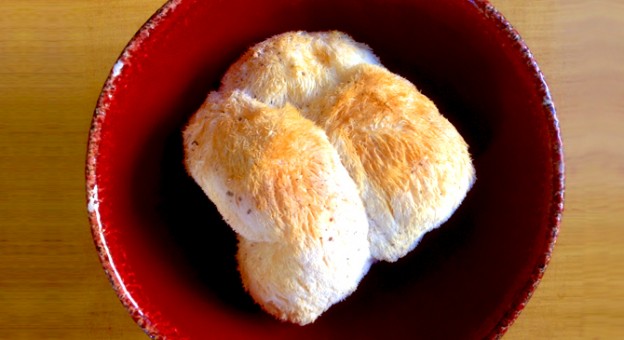“Time moves in one direction, memory in another” – William Gibson
All four of my grandparents lived into their 90’s. All were strong, lived healthy lives and suffered few physical ailments. Yet they all died of dementia.
They were a pretty fortunate lot though, to have been sustained so well for so long, left in the end with only pleasant memories of their youth in the twilight of their lives. Yet, I know that they suffered for their lapses. There was enormous fear when my grandmother, Gume, realized she’d left the stovetop on into the night. Sadness and longing was apparent in my grandmother, Augustina’s face, when trying to place the significance of her visitors, followed by cheer delight when the dimmed light bulb illuminated the faces of her children. There were violent outbursts from my grandfathers, borne out of frustration, but mostly there was docility to them, loving kindness found in surrender and eventually, a sense of peace.
Needless to say, the Mendez clan worries about mental decline and the first hint of forgetfulness can trigger anxiety about what may or may not come. If you have Alzheimer’s or dementia in your family, I’m sure you can relate.
At the moment, I have the memory of an elephant, if one can actually accurately assess the mental recall of that majestic animal. I remember everything, as does my dad. My mom… well, not quite as much, but certainly nothing worrisome. It’s more like normal grasping for words. Yet we all remember with low-grade dread what it was like to live with my grandparents and pray that we will fare better than they.
It is well documented that in order to keep your mind agile and memory strong, it’s important to keep learning, specifically, new things. It’s not enough to do the Sunday Time’s crossword puzzle if you already do it every week, because the habit of doing it engages the same mental patterns of thought. What’s better is to learn a language, or how to play an instrument. Stretching your mind in new and different ways is the way to create the neural pathways necessary to possibly protect yourself from cognitive decline.
Diet is incredibly important too! Eating processed, refined and sugary foods will not only affect your cognition short term, leading to bouts of forgetfulness and fogginess, but the free-radical damage triggered by those foods will further affect the integrity of your brain. Eating whole, real foods is vitally important to get proper nourishment, and some foods are more important than others. Exercise is also essential.
To get a sense of the best foods to eat for your memory, refer to my video on brain health. Here you will find all the foods that will optimally nourish your brain, helping you stay focused and your memory sharp. But there’s a new food you can add to that list, and interestingly enough, I found it while perusing one of my favorite haunts: the Farmer’s Market. It’s called Lion’s Mane and it is one funky looking mushroom!
Lion’s Mane is a medicinal mushroom used in Chinese Medicine that has been shown to have various benefits to the body. In addition to helping to protect against dementia and Alzheimer’s, it’s also used in the treatment of anxiety, depression, and immune dysfunction such as cancer. It is available in pill form, but before adding a supplement to your protocol discuss it with your qualified health practitioner, particularly if you have asthma or allergies. In the meantime, you can eat it and begin getting the benefits of this amazing toadstool. Check out my recipe below for a cognition boosting soup that will blow your taste buds away!
When I think about the possibility of ending up without my memories I try to recall my two grandmothers. Gume ended up being the nicest and friendliest person in her nursing home, saying hello to everyone she passed, whether she knew them or not. She was always loving to her family but rather brusque in her manner to the outside world, so this was a rather nice change. And Augustina learned how to read English phonetically after never having been able to utter a single English word her whole life. So there are quirks that happen in the brain that may be pleasant and entertaining should this happen to me, and I’ll try to remember that the next time I worry about my memory…. If I can recall it 🙂
Have a wonderful Monday and a great week!
xo
B
Memory “Mane” Miso Chowder Recipe!
This is an offshoot of my immunity soup, but actually so much better! You can prepare Lion’s Mane mushrooms a few ways… you can add them to stir-fries, fry them on their own and enjoy as a side dish, or even roast them in the oven. I decided though, that it would be most nutritious to cook them gently and combine with other cognition-boosting foods such as wild Alaskan salmon (for it’s Omega 3 benefits) and coconut oil (which has been shown to boost mental functioning). The vegetables contain loads of antioxidants that can protect the brain from free-radical damage and the miso helps to cultivate beneficial bacteria in the gut, further protecting mental health.
Hence, this soup, which came out far better than anything I’d imagined. Enjoy!

Ingredients
- 1 tbsp coconut oil
- ½ small onion or 1 shallot, sliced thin
- 1 clove garlic, minced
- 1 salmon filet
- 1 tbsp fish sauce
- 1 tbsp gluten-free tamari or Bragg’s aminos
- 1 teaspoon toasted sesame oil
- ¼ teaspoon hot chili oil (optional)
- 2 to 3 cups assorted chopped vegetables (I uses red cabbage and broccoli)
- 1 Lions Mane Mushroom, chopped (yields about ¾ cup)
- 2 tablespoons chopped cilantro
- 1 tbsp miso (I used the chick pea version)
- ½ cup cooked vermicelli rice noodles OR kelp noodles (optional)
- 4 to 5 cups water
Directions
- Melt coconut oil in soup pot and add onion/shallots and sauté about 3 minutes, then add garlic and continue to sauté another 3 minutes.
- Add 4 cups of water and fish sauce, tamari/Bragg’s aminos, sesame oil and hot chili oil. Bring to a simmer and then add salmon filet. Cover and simmer for about 7 minutes until fish is cooked through. Remove fish from stock, remove the skin and place back in the pot. Continue to simmer the stock another few minutes.
- In the meantime, cut up your vegetables, Lions Mane and cilantro.
- Turn the soup off and add the vegetables and cover pot. Wait about 5 minutes and add the mushrooms and the cilantro. Keep the pot covered another few minutes or so to allow the veggies to cook through but not so long that they get soggy. You want them to retain their crunch to some degree.
- Place miso in a bowl and ladle some hot broth into the bowl, making a paste with the miso. Add miso paste to the stock (you should never cook miso… but it can be added to hot food so long as it is not scalding or actively cooking). Stir in well.
- Ladle soup into bowls and garnish with fresh chopped Lion’s Mane, chopped red cabbage and a few leaves of fresh cilantro.
- Serves 2 to 3 comfortably. Enjoy!


